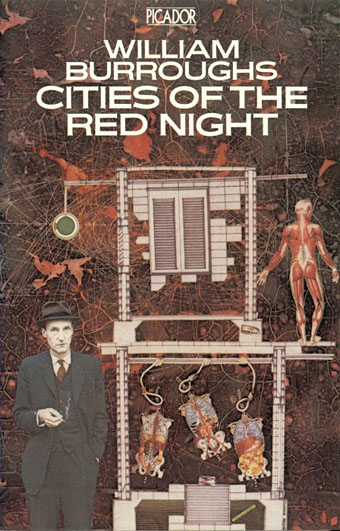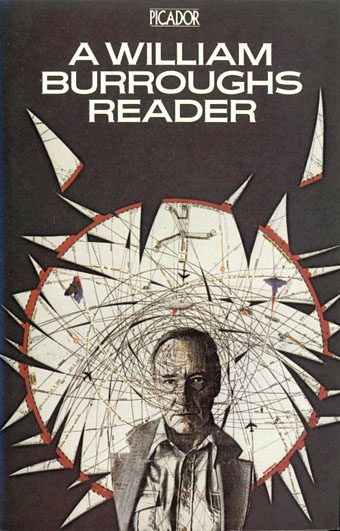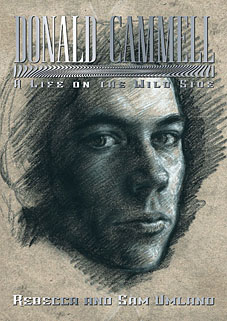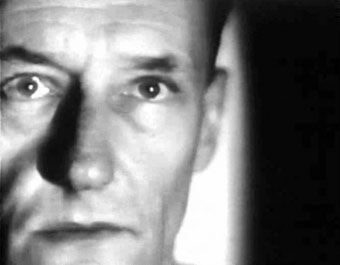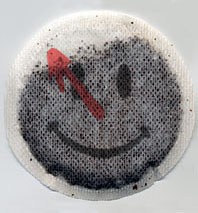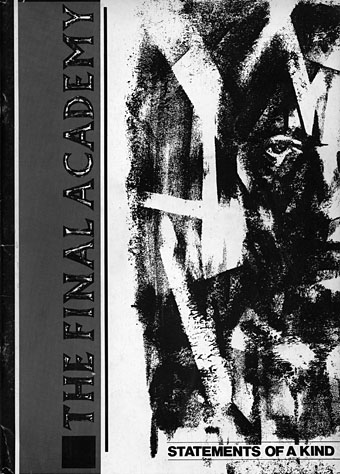
The event booklet, designed by Neville Brody.
William Burroughs’ reading in the city of Manchester took place on the 4th of October, 1982, at Factory Records’ Haçienda club, as part of the Manchester “edition” of The Final Academy, a Burroughs-themed art event put together by Psychic TV (Genesis P Orridge & Peter Christopherson) and others. A recent posting on the Grey Lodge is a torrent of The Final Academy Documents, the shoddily-produced DVD made from the low-grade video recordings that captured the event (originally an Ikon Video production from Factory). The DVD is so badly presented by Cherry Red that no one should feel guilty about downloading this.
I’ve always been grateful that a record was made of this event, however poor, since I was in the audience that evening, very conscious of the fact that this was my one and only opportunity to see Burroughs in the flesh. His appearance was the magical part of a scaled-down version of the larger two-day Final Academy that had taken place earlier that week in London. The rest of the event was either strange or underwhelming, not helped by the chilly and elitist atmosphere of Manchester’s newest and most famous club. In the days before “Madchester” and the rave scene (the period that gets excised from the city’s cultural history), the Haçienda was a cold, grey concrete barn with terrible acoustics and a members-only policy that required the flourishing of a Peter Saville-designed card at the door. The place was usually half-empty and the clientèle tended to be students living nearby.

